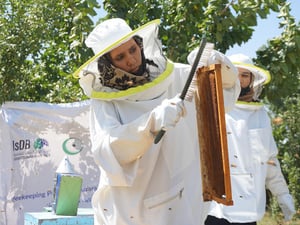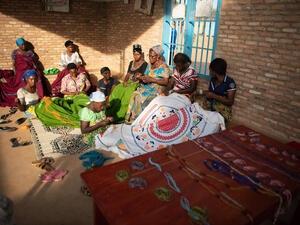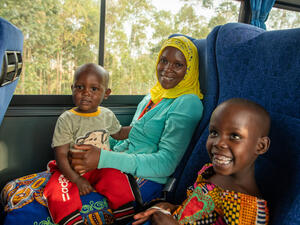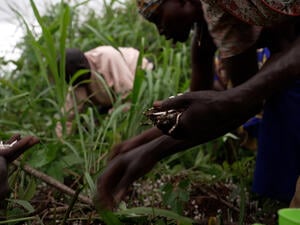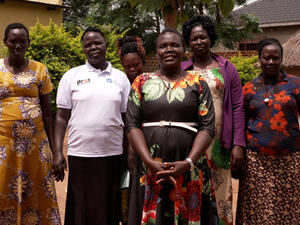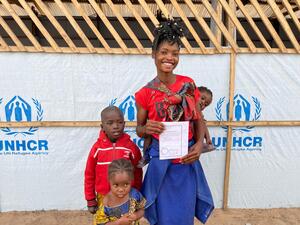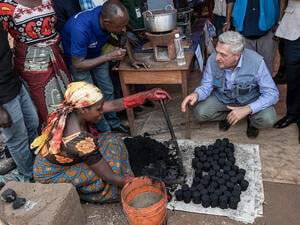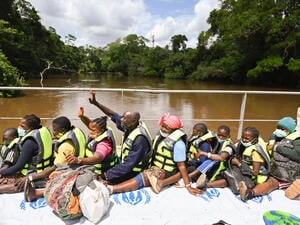More than 25,000 refugees return home from Republic of Congo since May
More than 25,000 refugees return home from Republic of Congo since May

A group of Congolese refugees heads toward Dongo transit centre after crossing the Oubangui River to Equateur province from Republic of Congo.
DONGO, Democratic Republic of the Congo, October 1 (UNHCR) - The UN refugee agency has helped more than 25,000 Congolese return to their homes in northern Democratic Republic of the Congo (DRC) from neighbouring Republic of Congo under a voluntary repatriation programme launched in May this year.
The 25,000 mark was passed last Friday and the current total of those helped back by UNHCR is 25,696, or more than 6,600 families. UNHCR plans to repatriate a further 24,000 refugees, mostly from Equateur province, across the Oubangui River to the DRC by year's end, plus a futher 32,000 next year.
There are currently more than 100,000 Congolese refugees still in Republic of Congo. They have been living in isolated areas along the river since fleeing inter-ethnic clashes in Equateur in 2009.
A the height of the crisis, about 143,000 Congolese fled their villages for safety in neighbouring countries - 123,000 in Republic of Congo and 20,000 in the Central African Republic - when the clashes erupted between the Munzaya and Enyele groups over traditional fishing and farming rights.
An additional 100,000 Congolese were displaced inside Equateur province but most returned home when conditions improved. A few thousand refugees also returned on their own from the Republic of Congo and from Central African Republic.
UNHCR has picked up the pace of returns since July, adding a second weekly convoy to take people across the river and home. This has enabled the refugee agency to take back a weekly average of 1,300 people. The returnees tell UNHCR staff that they believe the security situation has improved while parents say they want to go back to enrol their young children in primary schools.
Stefano Severe, UNHCR's Kinshasa-based regional representative, hailed the 25,000 milestone. "These results are very encouraging," he said, adding: "It is necessary to maintain this momentum by continuing to help the refugees living in the Republic Of Congo to come back home."
In addition to the aid package provided to each family on arrival, UNHCR and other humanitarian organizations have initiated reintegration activities, especially in the Libenge and Kungu territories, to help ensure a sustainable return. So far, and with a limited budget, UNHCR and its partners have distributed 700 shelter kits for spontaneous returnees and have also built primary schools as well as 350 shelters and 12 wells for the most vulnerable households. Awareness campaigns aimed at ensuring peaceful co-existence between the various communities have been conducted.
Equateur is one of the most remote provinces in the country, lacking basic socio-economic structures and infrastructure. UNHCR has appealed for development actors to help strengthen the reintegration activities.

